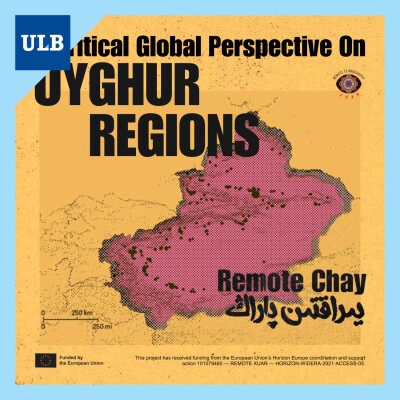Description
In this episode, Darren Byler (sociocultural anthropologist) and Rune Steenberg (Principal Investigator of the REMOTE XUAR project) speak about the Xinjiang Uyghur Autonomous Region also known as East Turkistan in the 21st century. Building on their own fieldwork in the 2010s, they discuss the turning points of the Ürümchi violence in 2009, the People's War on Terror from 2014 and the mass incarceration and re-education campaigns from 2017. These developments are seen in a global perspective of colonialism, capitalism, neo-liberalism, Islamophobia, surveillance and rising authoritarianism. Darren Byler offers a much needed left-critical frame of analysis to understand this context often misused for geo-political purposes on all sides.
----------------------------------
Remote Chay
How do you study places you cannot reach? When governments restrict access and surveillance makes traditional research impossible, scholars must find new ways to understand distant realities.
Remote Chay brings together experts to explore two key questions: How can researchers study inaccessible regions? And what can we learn about Xinjiang Uyghur Autonomous Region—one of the world's most heavily surveilled territories?
Our guests share insights on remote ethnography, a methodological approach for researching areas where traditional fieldwork is impossible. From digital anthropology to diaspora interviews, we explore innovative ways to gather knowledge across barriers of distance, politics, and control.
Remote Chay isn't just a podcast—it's an ongoing scholarly dialogue. We invite listeners to engage: comment, share insights, and help refine these approaches for studying the unstudyable.
Remote Chay launched in 2024 as part of the EU-funded project "Remote Ethnography of Xinjiang Uyghur Autonomous Region," a collaboration between Univerzita Palackého v Olomouci, Julius-Maximilians-Universität Würzburg, and Université libre de Bruxelles.
ULB Podcasts, les podcasts de l'Université libre de Bruxelles.
Hébergé par Ausha. Visitez ausha.co/politique-de-confidentialite pour plus d'informations.





